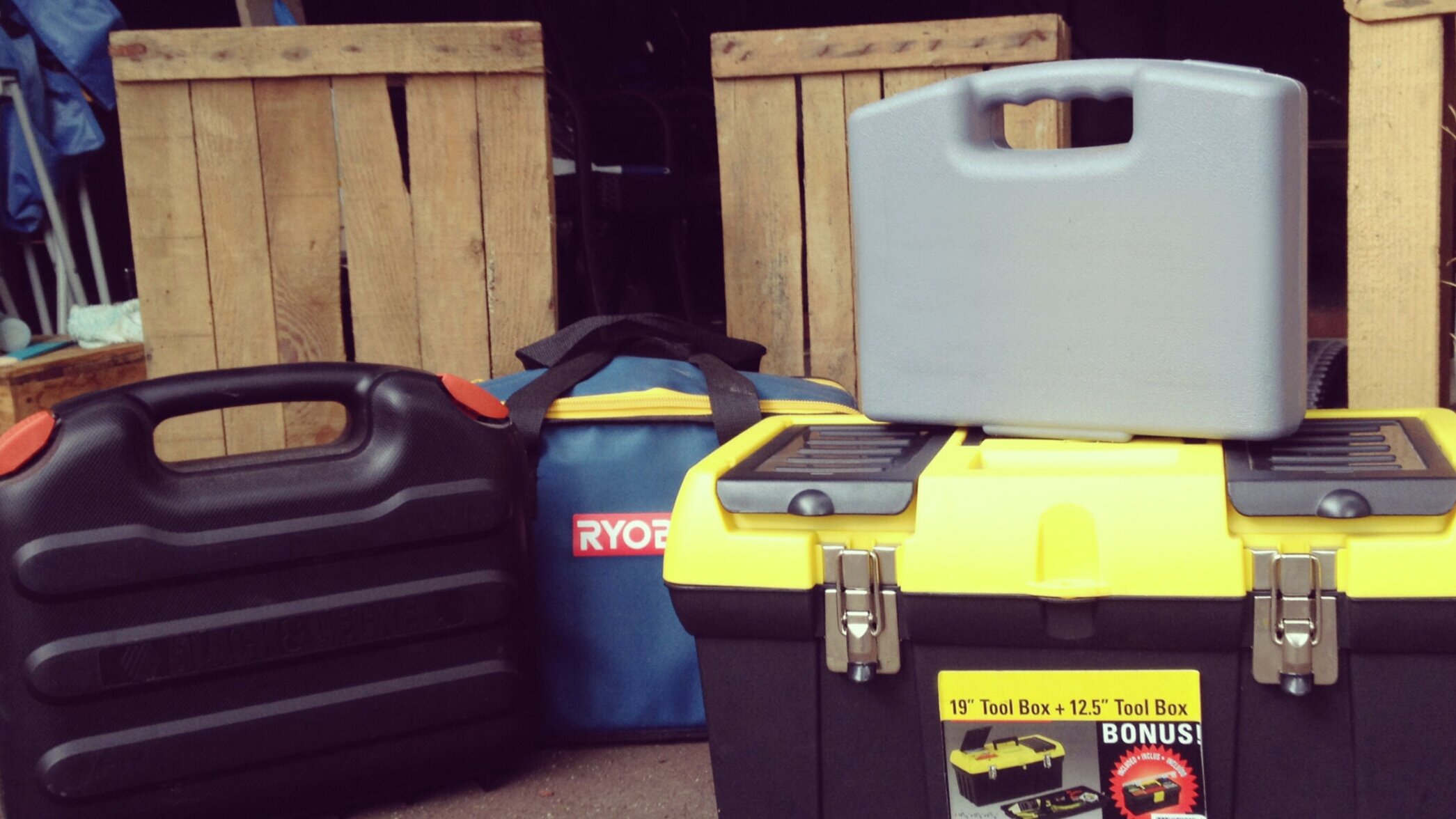You stand there and say goodbye to your spouse, arms wrapped around each other, knowing that it will be the last hug you’ll share for the next several long months. You somehow manage to get yourself together enough to make your way home. And then it happens…something breaks besides your heart — like the toilet, garbage disposal, the garage door, or your car.
Does this sound familiar? Many military spouses have told me stories of unpleasant situations that occurred immediately following their spouses’ departures. One friend told me of the time she came home from the deployment ceremony to find her toilet overflowing.
We might not want to face the cold truth, but we are the ones shouldering the household maintenance responsibilities after our spouses leave. Some military spouses are super handy around the house, but others don’t have the first clue about how to take care of things. So how do we prepare ourselves for the things that are bound to go wrong? My solution is to build a toolbox with tangible tools and great contacts to have ready when needed.
Tools and Supplies
Here are some steps to make sure you have the basic tools and maintenance supplies covered:
-
Have your spouse show you where the tools are before they go.
-
Take inventory to see if you need any of the basics.
-
– Hammer
-
– Screwdrivers (Flat-head and Phillips)
-
– Needle nose pliers
-
– Measuring tape
-
– Wrench
-
– Level
-
– Utility knife (aka box cutter)
-
– Flashlight
-
– Electric drill (optional, but I love mine)
-
– Duct tape (always the essential)
-
– Plunger
-
– Air pump (for bicycles and strollers)
-
– Plunger
-
– Baking soda and vinegar (for tough messes and clogged drains)
-
– Yard maintenance equipment
-
Check to see whether your installation has a self-help “store” where you can get free supplies and check out tools and equipment.
-
Bargain shop at garage/estate sales.
-
Check your Exchange. AAFES often has a decent selection of home and auto items.
-
Home Depot, Lowe’s or ACE Hardware offer larger equipment like carpet cleaners for rent.
-
Home Depot and Lowe’s offer a military discount and often offer free DIY classes that you could check out to boost your skills.
Contacts
These are some of your essential contacts – the people that can help you get things fixed.
-
Housing maintenance – If you live in government housing, the maintenance office will come out and fix everything from broken plumbing to appliances to cracked paint. They’ll replace light bulbs that are out of reach. Depending on where you live, they might even install shelving or hang heavy things on the wall. It doesn’t hurt to ask!
-
Landlord – If you don’t live in government housing, your landlord is the person to call for major issues. I have my landlord’s phone number programmed into my phone. If something happens and I need help quickly, I can call mine no matter what time of day it is. If you own your home, or need help beyond the scope of what housing or your landlord will handle, find a trusted repair man who will be able to help you in an emergency and with all of those little extras you’d like taken care of.
-
Yard/Snow Service – You may or may not be excited about taking care of things outside in your spouse’s absence. If you don’t want to do it, consider paying a neighbor kid, or swapping services with a friend. You might know somebody who would be thrilled to mow your lawn or shovel your snow in peace while you watch their children.
-
Roadside Assistance – There’s nothing worse than being stranded without someone to call. Check to see if your auto insurance provides roadside assistance and how much they’ll do. If you don’t have it, or it’s not adequate, consider AAA in the States or ADAC in Germany. If you’re in another country, ask around to see what other military families are using.
-
Car Issues – I was taught to change a tire and check oil, but beyond that I take my car to a trusted mechanic. If you haven’t been the one handling the service of your car, ask your spouse where he’s been going. If you don’t have a mechanic, try checking out the Auto Repair Shop on your installation where people can teach you how to repair your car on your own or with their help. Not to mention, this is definitely a cheaper solution. The one here at Fort Stewart was extremely helpful when I had a car issue. Double-check the warranty on your car to see if the dealer is covering anything. Mark service dates in your calendar. Be sure to drive your spouse’s car from time to time while they are gone.
-
Friends and Family – There is no better solution than having a great support team around you when something happens. Whether it is a weather issue that causes damage or some unforeseeable circumstance, your friends and family can always lend a hand, moral support, or suggestions on how to remedy a problem. Don’t be afraid to ask for help.
What was the worst maintenance issue that came up for you during deployment? How did you handle it?

